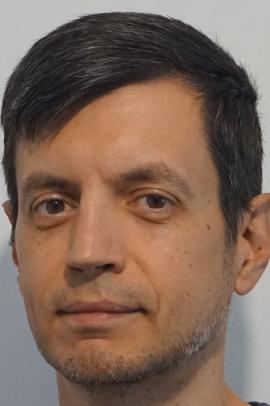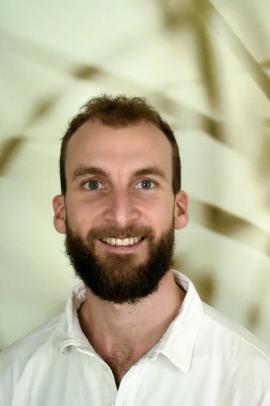MBSR Teacher Training, Graduate Level 3 course
This graduate-level training retreat is designed to support experienced MBSR teachers on their teaching pathway. In light of recent and evolving developments in the wider field with regard to program integrity, fidelity and standards, this intensive retreat offers the opportunity to explore current professional and ethical issues of concern to MBSR teachers.
On this retreat participants will engage in a personal and group learning process that will deepen their skills in teaching and integrating mindfulness-based approaches in professional practice. A portion of the retreat will be spent in silent practice together.
Graduate Level 3, MBSR Teacher Training
Mindfulness-based Stress Reduction Teacher Training Graduate Level 3 course
As mindfulness grows in application around the world and the research base for its effective impact and implementation advances, mindfulness networks and professional bodies are emerging in various countries, at differing paces, worldwide. At Mindful Academy Solterreno, we continue to offer a learning container that supports and encourages the deepening of practise and understanding required of MBSR teachers. Holding these global developments in a wide awareness, our training pathway demonstrates our continued commitment to delivering training to the highest quality standards with the addition of this advanced level training retreat, that forms part of the certification pathway.
TT3 is a graduate-level training that is an intensive experiential course and offers a supportive space for deep nourishment, connection and learning. You will experience in-depth workshops on the aspirations and intentions of the teaching and experiential learning of the full 8-week MBSR Course. You will also explore who you are as a teacher of mindfulness and cultivate the embodiment of a spacious open-hearted awareness and a spirit of adventure that is core to the learning style of MBSR. There will also be time and space for silent practice together. To ensure plenty of opportunity for small group practice and reflection the group size will be limited to 12 students.
It is intended for MBSR teachers who have previously attended a Teacher Training Level 1 and 2 with us, Mindful Academy Solterreno, or an equivalent course with another training organisation (please contact us if you are not sure about equivalency). You will also have experience of teaching MBSR and have attended silent retreats to support your personal practice.
Fidelity to the MBSR Curriculum
As the global community of mindfulness-based teachers and trainers pursue a collective inquiry into what is involved in sustaining the highest standards of practice in delivering these programmes, CFM UMass published a core curriculum for MBSR while standards for training and teaching mindfulness and universal ethical principles were proposed by the International Integrity Network in 2017. We regard these developments as an encouragement to attend to the integrity of teaching MBSR in increasingly diverse contexts around the world. At Mindful Academy Solterreno we uphold the principle of fidelity to the MBSR Curriculum, as published by CFM Umass in 2017:
"Adherence to the theoretical constructs and core elements of MBSR as described in this Curriculum Guide are based upon clinical experience and scientific investigations. Without such adherence, the veracity of MBSR will be diminished and the scientific results increasingly suspect." - 2017 CFM Umass Curriculum
Retreat Format
“Teaching mindfulness is the hardest work - as well as no problem at all - Jon Kabat-Zinn remarked to his audience at Wisdom 2.0 in 2018- ..it demands presence, humility and a deepening engagement with life, moment to moment.”
TT3 provides an opportunity to experienced MBSR teachers to deepen their personal practice and their understanding of the current professional, ethical and teaching skills that uphold the integrity of teaching the core curriculum. The structure of the retreat will provide space for
- Collective inquiry and skills workshops on key professional issues including emergent, embodied and experiential learning in MBSR; trauma-sensitive teaching; inquiring into socially-engaged mindfulness; group dynamics, process and inquiry;
- Silent practice, with teacher-led instruction, grounded in the Four Foundations of Mindfulness.
The workshops on TT3 offer a space to review key professional issues for MBSR teachers including embodied teaching and emergent learning, trauma-sensitive teaching, diversity and socially-responsive engagement and group dynamics, process and inquiry. These sessions offer teaching practice opportunities, whereby participants may select to teach an aspect of the MBSR programme, followed by a feedback and reflection process within the group.
Participants might choose an aspect of the programme that they are particularly curious about, wish to experiment with, are unconfident about or are less familiar with. Alternatively, participants might use the space to bring a particular inquiry or question on a theme that they want to explore using the support of the group. We will reflect on such key questions as: How do we explore the MBSR themes through dialogue and reflection rather presenting didactically, as a lecture? What does ‘Teaching through Emergence” mean for us? How do we support diversity and inclusion in our MBSR teaching? What does ‘trauma-sensitive teaching’ involve? How can we bring mindfulness into our wider community? How does mindfulness support social engagement and responsiveness?
Trauma-Sensitive and Socially-Engaged Mindfulness
These two key professional issues feel particularly alive in the mindfulness community at this moment. It has been suggested that 90% of the world's population will be exposed to a traumatic event over the course of their lives and up to 20% of us will develop post-traumatic stress (Frans, Rimmo, Aberg & Fredrikson, 2005). This means that “anywhere mindfulness is being practised, someone in the room is likely to be struggling with trauma” (Treavelen, 2018). How mindfulness teachers can respond skillfully to this need will be explored, including how to teach the general public in a trauma-informed way to minimise harm for participants and to support recovery. Trauma-informed practise also involves growing awareness of the wider systemic and social context within which we live and work. As an international training centre, Mindful Academy Solterreno offers a rich and diverse community in which we can explore how mindfulness and compassion training supports our capacity to engage actively in our wider social communities and systems, including attending to diversity and inclusion in teaching.
” … for our work to be most skilful, it is important for us to inquire deeply into the inevitable limitations of our individual perspectives and to articulate the tension, mystery, and potential for continually deepening our understanding and further the evolution of our collective interests and activities …” (Kabat-Zinn, 2011).
Group Dynamics, Process and Inquiry
We will continue to learn and practice the skills of Inquiry, with particular attention to its skilful use with groups. We will explore key frameworks and theoretical perspectives relevant to MBSR teaching that can support us in making the most of the potential of the group. In particular, we will explore, through experiential learning, the “Inside Out Group Model [IOG]” for Teaching Groups in Mindfulness-Based Programs developed by leading trainers in the UK, Griffith, Bartley and Crane (2019), as well as other key models such as Tuckman’s (1965; 1977) developmental sequence of group formation. The IOG model offers a framework within which MBSR teachers can “deliberately engage with the group process to facilitate optimal learning during an MBP course” and outlines the following components:
- Reading the Group
- Holding the Group
- Establishing Safety
- Enabling Encounters with New Learning
- Befriending the Group
Though dated, Tuckman’s model may be familiar to many since it offers an effective, relevant and accessible model to understand group dynamics, development and process. Groups are seen to develop through a sequence of five stages:
- Forming
- Storming
- Norming
- Performing
- Adjourning
Four Foundations of Mindfulness
By participating in this graduate-level training retreat, you will deepen your own personal practice through dialogue and silent practice. The first two days will be spent in shared silence during which we will explore, experientially, the Four Foundations of Mindfulness teaching. Though a secular practice, MBSR mindfulness is rooted in the traditions of ancient teachings and practising with these instructions encourages our integrity as teachers. Traditionally, mindfulness is understood to be applied to four domains:
- mindfulness of the body (kaya);
- mindfulness of feelings or sensations (vedanā);
- mindfulness of mind or consciousness (citta);
- mindfulness of dhammās (mental factors and categories)
“Regular practice grows our access to and intimacy with our natural capacity for awareness, so that all our doing flows from this space and becomes our ‘default mode” (Kabat-Zinn, 2019).
Feedback
Exploring together different teaching styles, individual and collective reflecting on contemporary professional issues for MBSR teachers and practising our teaching and inquiry skills in small peer groups supports our intention to deepen our understanding of the core foundations and constructs underlying MBSR. The practice of receiving and providing creative feedback is fundamental for our development as teachers. It is our experience that the combination of time to settle into deep personal practice within Solterreno’s supportive community, with time for teaching practice and reflection, offers unique environmental conditions which are particularly conducive for learning and growth as MBSR teachers in contemporary practice.
Staying connected with the standards and ethics, we utilise the MBI-TAC as a guiding framework for assessing competency of teaching. Formal assessment of competency using this approach forms part of the certification pathway with Mindful Academy Solterreno.
LEARNING INTENTIONS:
- To support certification of teaching and progression of competency from ‘Competent’ to ‘Proficient’ (MBI-TAC)
- Continue the cycle of learning and feedback on MBSR teaching, directly observed by our team of Trainers as well as peers.
- Refreshing intention and reawakening a connection with our motivations for engaging in mindfulness practice in our personal and professional lives.
- Reconnecting with the intentions underpinning our personal practice
- Reconnecting with the aspirations and intentions underpinning the MBSR course
- Deepening practice with the opportunity to settle into sustained mindfulness practice during both formal and informal sessions.
- Inviting an alive inquiry and curiosity into the process of mindfulness practice as it arises moment by moment.
- We cannot do this work alone and this retreat offers an opportunity to connect with others who are committed to mindfulness in their personal and professional lives so that we can draw support, inspiration and encouragement from each other.
- Strengthening MBSR teaching skills with a focus on teaching with sensitivity to diversity, inclusion and trauma, and attending to group process, dynamics and inquiry as a key teaching tool. There will be opportunities to share teaching practice with each other, receive and offer feedback and reflect on the process.
- Supporting and sustaining ourselves we share reflections on how we attend to our own nourishment and self-care as we offer service in our communities.
- Engaging with Mindfulness in our everyday lives, Our MBSR teaching practice takes place within the context of the complexity of our working and personal life. In the supportive and spacious atmosphere of retreat life at Solterreno we have a new opportunity to investigate and explore how we can support ourselves to sustain connection to the immediacy of experience and to our intentions in the midst of everyday life.
When we step away from the safe container of our initial teacher training retreats and we take our first steps as novice teachers of mindfulness and MBSR, perhaps we feel the depth of our ‘not knowing’. We may feel the edginess of daring to teach and share with others in our communities this profound, yet simple, practice that we care about so deeply. And we do it anyway! We meet our participants, who show up for our courses, with the experiential foundations of our initial MBSR teacher training, with the support of our personal practice and deepening understanding of the core teachings, and with the guidance of fellow teachers who have walked the path before us and walk with us today, in the form of supervisors, peers and retreat teachers. We teach our first few MBSRs and in completing each one, maybe we begin to let go of those aspects of ourselves that ‘get in our own way’ and maybe we are finding our footing with a more emergent and less prescriptive style of teaching the core practices and themes of MBSR. We discover the curriculum truly does arise and emerge in the process of each group and we find ourselves drawn to the appeal of “the richness of the present moment held gently in awareness, and the profound and authentic authority of each person’s own experience, equally held with kindness in awareness” (p.299 – 300, Kabat-Zinn, 2011). We begin to taste the exquisite heart of this practice, as we bear witness to our perfect imperfectness in being human, and as we inquire into our moment to moment experience, we honour that “there is nowhere to go, nothing to do and nothing to attain.” Yet maybe we are not so aware of all of this as it happens! And all that we are ‘doing’ as MBSR teachers that is wise, compassionate and heartful. TT3, as a graduate level retreat offers a supportive community space to meet ourselves where we are at, as this teachers, right now. We give ourselves the space to reconnect with our aspirations as teachers, the intentions of MBSR and the skills, understandings and practices that are necessary to deliver on these intentions with each group and participant we meet on our paths.
- Sheena
CERTIFIED MINDFULNESS MBSR TEACHER:
On successful graduation from this level 3 module, you will be well on your way to be awarded Certified MBSR Teacher with Mindful Academy Solterreno. For more details please refer to our Teacher Training Steps























